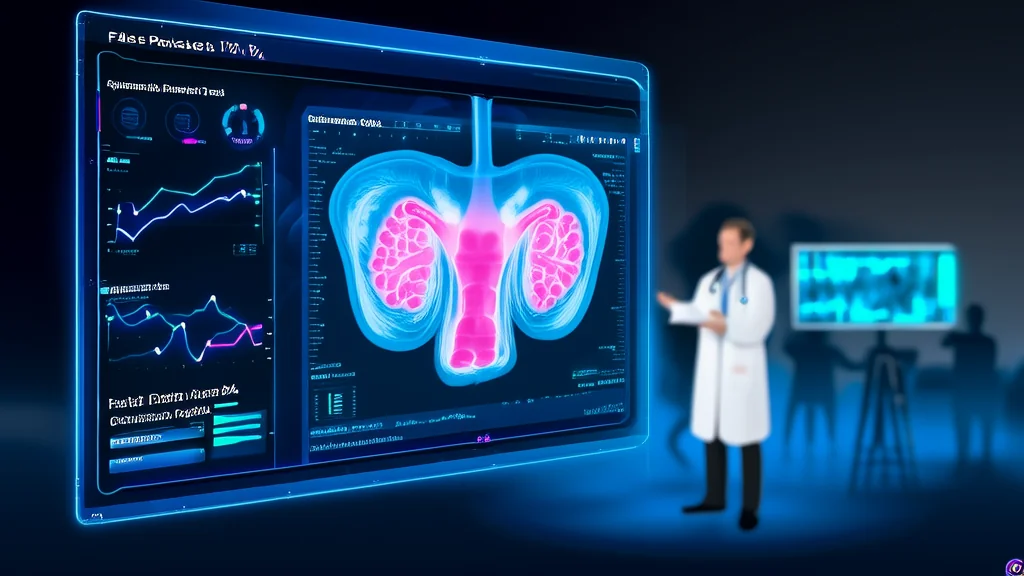AI in Action: Transforming Industries and Enhancing Lives
Welcome to our weekly roundup of the latest AI developments, where we explore how artificial intelligence is making a tangible impact on our world. From groundbreaking industry applications to innovative startups, this week's stories highlight the practical implications and human interest angles that make AI so compelling.
Revolutionizing Healthcare: AI-Powered Diagnostics Save Lives
In the healthcare sector, AI is not just a buzzword; it's a life-saving technology. One of the most promising applications is in medical diagnostics, where AI algorithms are helping doctors detect diseases earlier and more accurately. For example, Google Health has developed an AI system that can detect breast cancer with 11.2% fewer false positives and 9.4% fewer false negatives compared to traditional methods. This means fewer unnecessary biopsies and a higher chance of early detection, which is crucial for effective treatment.
Practical Impact: The AI system is currently being tested in several hospitals, and the results are encouraging. In one case, a patient’s early-stage cancer was detected by the AI, which was initially missed by radiologists. This early detection allowed for timely intervention, significantly improving the patient's prognosis.
Real-World Application: Beyond breast cancer, AI is also being used to diagnose other conditions, such as diabetic retinopathy and skin cancer. Companies like IDx and SkinVision are leading the way, providing accessible and accurate diagnostic tools that can be used even in remote areas.
Future Implications: As AI continues to improve, we can expect to see more widespread adoption in healthcare. This will not only save lives but also reduce the burden on healthcare systems, making care more efficient and cost-effective.
AI in Retail: Personalized Shopping Experiences Drive Sales
The retail industry is another area where AI is making a significant impact. By leveraging machine learning, retailers can now offer personalized shopping experiences that boost customer satisfaction and drive sales. For instance, Stitch Fix, an online personal styling service, uses AI to analyze customer preferences and provide tailored clothing recommendations. The company's AI-driven approach has led to a 30% increase in customer retention and a 25% increase in average order value.
Practical Impact: The use of AI in retail is not just about convenience; it’s also about creating a more engaging and satisfying shopping experience. Customers appreciate the personalized touch, and businesses benefit from increased loyalty and higher sales.
Real-World Application: Another example is Walmart, which has implemented AI-powered chatbots to assist customers with their inquiries. These chatbots can handle a wide range of tasks, from answering product questions to processing returns, freeing up human staff to focus on more complex issues.
Future Implications: As AI becomes more sophisticated, we can expect to see even more innovative applications in retail. For example, AI could be used to optimize supply chain management, predict trends, and even design new products based on customer feedback.
AI Startups Tackling Social Issues: A New Wave of Innovation
While major players like Google and Walmart are making waves with AI, a new generation of startups is using the technology to address pressing social issues. One such startup is Wadhwani AI, which is using AI to combat public health challenges in developing countries. Their AI-powered tool helps track and prevent the spread of diseases like malaria and tuberculosis. By analyzing data from various sources, including satellite imagery and mobile phone records, the tool can predict outbreaks and guide public health interventions.
Practical Impact: In regions where resources are limited, Wadhwani AI’s tool is a game-changer. It allows health workers to target their efforts more effectively, reducing the spread of disease and saving lives. In one pilot project in India, the tool helped reduce the incidence of malaria by 20% over a six-month period.
Real-World Application: Another startup, Kinvolved, is using AI to address the issue of chronic absenteeism in schools. Their platform, KiNVO, uses predictive analytics to identify students at risk of dropping out and provides targeted interventions to keep them engaged. In a recent study, schools using KiNVO saw a 27% reduction in chronic absenteeism.
Future Implications: As more startups focus on solving social problems, we can expect to see a wider range of innovative solutions. AI has the potential to make a significant impact in areas such as education, environmental conservation, and disaster response, improving lives and building stronger communities.
These stories illustrate how AI is transforming industries and addressing real-world challenges. From healthcare and retail to social impact, the practical applications of AI are making a tangible difference. Stay tuned for more updates on how AI is shaping our future!
